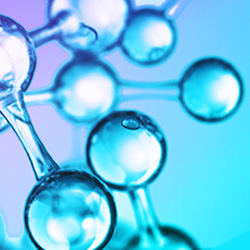Water: Molecular Origins of its Anomalies
 Water shapes our blue planet, forms clouds, drives the climate, is a unique solvent in chemistry, the ‘elixir of life’ in biology, and a complex fluid with a multitude of anomalies in its phase behavior in physics. Despite its importance, a full understanding of the behavior of water in its various forms and systems has remained challenging. This special topic issue will highlight recent progress in understanding water behavior, in supercooled, stretched, pressurized, supercritical and normal conditions, through advanced molecular probes of structure and dynamics of water. Articles reporting novel research involving experiment, theory, and simulation of water in all its many phases and at the interface with other materials are welcome.
Water shapes our blue planet, forms clouds, drives the climate, is a unique solvent in chemistry, the ‘elixir of life’ in biology, and a complex fluid with a multitude of anomalies in its phase behavior in physics. Despite its importance, a full understanding of the behavior of water in its various forms and systems has remained challenging. This special topic issue will highlight recent progress in understanding water behavior, in supercooled, stretched, pressurized, supercritical and normal conditions, through advanced molecular probes of structure and dynamics of water. Articles reporting novel research involving experiment, theory, and simulation of water in all its many phases and at the interface with other materials are welcome.
Topics covered include, but are not limited to:
- Experimental and theoretical studies of the phase behavior of water, including far from equilibrium conditions, crystalline and amorphous ice phases, e.g.
- Studies of physiochemical and thermophysical properties
- Structure and dynamics of the phases
- Liquid-liquid transition and critical point,
- Nucleation and growth of ice,
- Glass transition and polyamorphism,
- Cavitation and nanobubble formation in bulk and on solid–liquid interfaces
- Confined water,
- Nano-fluidics,
- Nuclear quantum effects,
- Water (auto-)dissociation,
- Proton transfer in water,
- Advances in simulating water e.g.
- Interaction potentials
- Electronic and quantum effects on the interaction potential
- Utilizing machine learning and neural network potentials.
- Aqueous solutions, interfaces and surfaces
- Premelting on ice surfaces,
- Effect of surfaces on heterogeneous ice nucleation,
- Chemical reactions catalyzed by aqueous and ice surfaces,
- Hydration of (bio)molecules,
- Antifreeze strategies,
- Hydrate formation and stability.
- In general, novel experimental and theoretical approaches for studying molecular water.
Guest Editors
Chantal Valeriani, Universidad Complutense de Madrid
Claudia Goy, Deutsches Elektronen-Synchrotron (DESY)
Christoph Salzmann, University College London
Ying Jiang, Peking University
Gregory Kimmel, Pacific Northwest National Laboratory
JCP Editors
Mischa Bonn, Max-Planck Institute for Polymer Research
Francesco Sciortino, Universita di Roma La Sapienza
Angelos Michaelides, University of Cambridge
More information:
Please note that papers will be published as normal when they are ready in a regular issue of the journal and will populate on a virtual collection page within a few days of publication. Inclusion in the collection will not cause delay in publication.
How to Submit:
- Please submit through the online submission system.
- Under manuscript type → select Article or Communication, as appropriate
- Under manuscript information → Manuscript classification → select Special Topic: “Water: Molecular Origins of its Anomalies”
